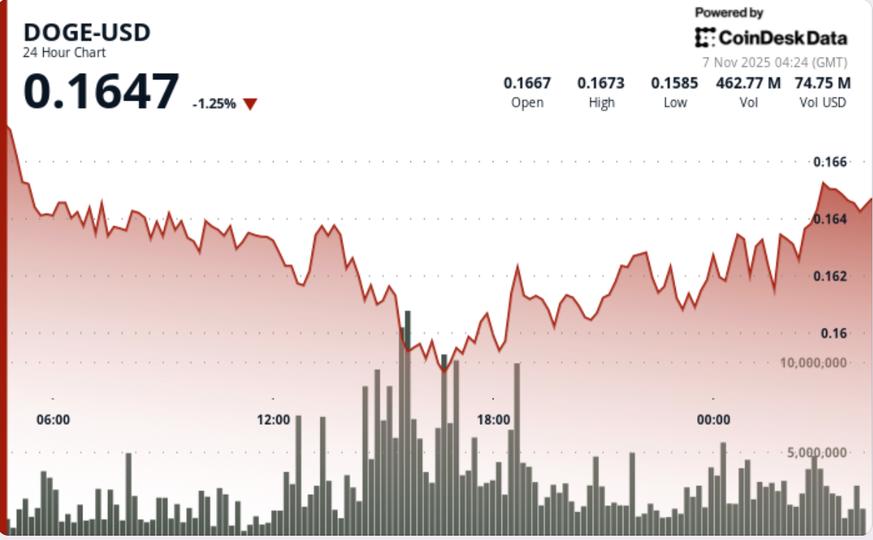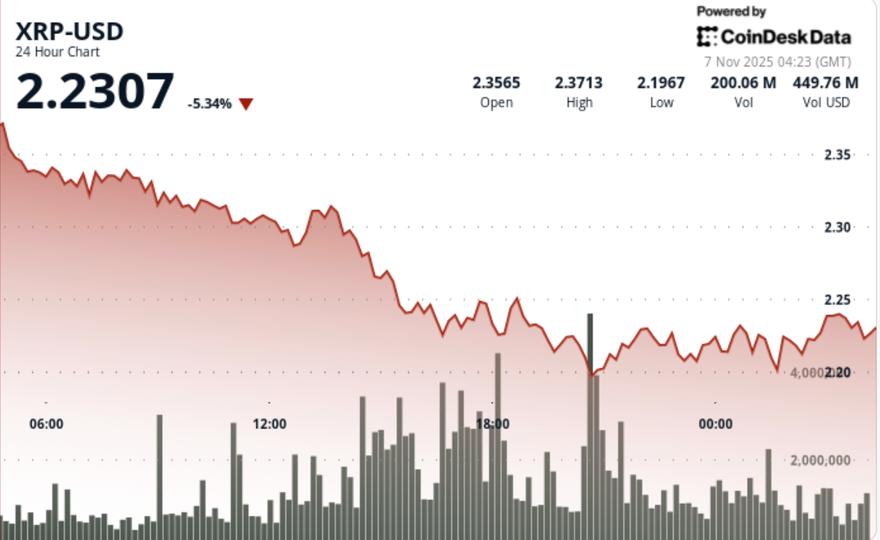
BitcoinWorld Stunning Bitcoin Revenue: Block Reports $1.97 Billion Q3 Earnings Through Cash App Have you ever wondered how mainstream Bitcoin adoption is transforming traditional payment companies? The latest quarterly results from Jack Dorsey’s Block provide a powerful answer. The company just reported staggering Bitcoin revenue of $1.97 billion for the third quarter, demonstrating how cryptocurrency trading has become central to modern financial services. How Significant Is Block’s Bitcoin Revenue Achievement? Block’s Bitcoin revenue doesn’t just represent impressive numbers—it signals a fundamental shift in financial services. This $1.97 billion figure accounts for approximately one-third of Block’s total $6.11 billion in Q3 revenue. Moreover, the company achieved a net profit of $661.5 million during the same period. These numbers reveal several important trends: Bitcoin trading through Cash App has become a major revenue driver Traditional payment companies are successfully integrating cryptocurrency services Consumer demand for Bitcoin accessibility continues to grow substantially What Does This Mean for Bitcoin Adoption? The substantial Bitcoin revenue generated by Block indicates growing mainstream acceptance. Through its user-friendly Cash App platform, Block has made Bitcoin trading accessible to millions of users who might otherwise avoid complex cryptocurrency exchanges. This approach has proven remarkably successful, creating a sustainable revenue stream while advancing cryptocurrency adoption. Furthermore, Block’s consistent performance in Bitcoin-related services shows that cryptocurrency can complement rather than compete with traditional financial offerings. The company has demonstrated that Bitcoin services can generate significant revenue while maintaining overall profitability. How Does Block’s Performance Compare to Previous Quarters? While specific quarter-over-quarter comparisons aren’t provided in the current report, the $1.97 billion Bitcoin revenue represents a substantial portion of Block’s business operations. The company’s ability to generate such significant cryptocurrency-related income while maintaining traditional payment services highlights its successful diversification strategy. This performance also suggests that Bitcoin trading remains resilient despite market fluctuations. Block’s consistent focus on making cryptocurrency accessible through Cash App appears to be paying substantial dividends, both literally and figuratively. What Challenges Does Block Face in Maintaining Bitcoin Revenue? Despite the impressive Bitcoin revenue figures, Block must navigate several challenges to sustain this performance: Market volatility affecting trading volumes and revenue Regulatory developments impacting cryptocurrency services Competition from other platforms offering similar services Technological requirements for secure and efficient trading However, Block’s established user base and integrated approach position it well to address these challenges. The company’s experience in financial services provides valuable insights for managing cryptocurrency-related risks while maximizing opportunities. Conclusion: The Future of Bitcoin in Mainstream Finance Block’s remarkable $1.97 billion Bitcoin revenue achievement demonstrates that cryptocurrency has firmly entered the mainstream financial landscape. The success of Cash App’s Bitcoin trading services shows that consumers want accessible, integrated cryptocurrency options. As more traditional companies observe Block’s success, we can expect increased cryptocurrency integration across the financial sector. This development represents more than just impressive revenue numbers—it signals a fundamental transformation in how people interact with digital assets. Block has proven that Bitcoin services can be both accessible to everyday users and highly profitable for companies that implement them effectively. Frequently Asked Questions What percentage of Block’s total revenue comes from Bitcoin? Bitcoin revenue represents approximately one-third of Block’s total revenue, with $1.97 billion out of $6.11 billion total revenue coming from Bitcoin trading through Cash App. How does Block generate Bitcoin revenue? Block generates Bitcoin revenue primarily through its Cash App platform, where users can buy, sell, and trade Bitcoin. The company earns fees and spreads on these transactions. Is Block’s Bitcoin revenue sustainable? While cryptocurrency markets can be volatile, Block’s established user base and integrated approach suggest that Bitcoin revenue could remain significant, though it may fluctuate with market conditions. How does Block’s Bitcoin performance affect the broader cryptocurrency market? Block’s success demonstrates mainstream acceptance and provides legitimacy to Bitcoin as a viable financial asset, potentially encouraging other companies to integrate cryptocurrency services. What risks does Block face with its Bitcoin revenue stream? Key risks include market volatility, regulatory changes, security concerns, and competition from other platforms offering similar services. How has Block’s Bitcoin revenue changed over time? While specific historical comparisons aren’t provided here, Block has consistently reported substantial Bitcoin revenue in recent quarters, indicating growing adoption and usage. Found this analysis insightful? Share this article with others interested in cryptocurrency markets and Block’s impressive Bitcoin revenue performance. Help spread awareness about how traditional companies are successfully integrating cryptocurrency services! To learn more about the latest Bitcoin trends, explore our article on key developments shaping Bitcoin institutional adoption. This post Stunning Bitcoin Revenue: Block Reports $1.97 Billion Q3 Earnings Through Cash App first appeared on BitcoinWorld .
Bitcoin World
You can visit the page to read the article.
Source: Bitcoin World
Disclaimer: The opinion expressed here is not investment advice – it is provided for informational purposes only. It does not necessarily reflect the opinion of BitMaden. Every investment and all trading involves risk, so you should always perform your own research prior to making decisions. We do not recommend investing money you cannot afford to lose.
BlackRock Exec Drops Trillion-Dollar Revelation At Ripple Swell, But Is XRP Ready?

Ripple’s Swell 2025 conference in New York has quickly become one of the most talked-about events in the crypto and finance world. Among the highlights was a statement from Maxwell Stein, a member of BlackRock’s digital assets team, that sent the audience into applause and resonated with enthusiasts on social media. He revealed that the global financial market is now ready for large-scale blockchain adoption, and the infrastructure being built by companies like Ripple could soon facilitate the movement of trillions of dollars on-chain. BlackRock’s Maxwell Stein Says The Crypto Market Is Ready During his session, Stein highlighted the transformation underway in global finance, noting that traditional securities are still held in legacy systems but that this separation between traditional and tokenized assets is gradually disappearing. Related Reading: Ripple Just Launched A Game-Changing Service In The US Leveraging XRP And RLUSD He explained that in the short term, proving utility is the most important thing to gaining broader adoption and that there are currently two types of users driving this shift: those already in the crypto space and a second wave of early institutional adopters. Stein emphasized the need for continued market momentum to demonstrate the practical usefulness of blockchain solutions and attract larger financial players. “We need that market momentum in order to prove the utility, to actually get the larger players to eventually come in,” he said. As noted by an XRP advocate with the name Diana on the social media platform X, Stein credited Ripple and other early builders for proving that blockchain works. Not as a concept, but as real financial infrastructure. The idea that trillions in capital could eventually move through blockchain rails represents a fundamental change in how the world’s financial systems might operate. The idea sounded like a myth back when the crypto industry was first created. What once seemed like a distant fantasy in crypto’s early days has begun to take shape as reality, and big names like traditional finance are now moving into the crypto industry every day. Nasdaq’s CEO Says Regulation Is Important Nasdaq CEO Adena Friedman also shared her perspective at the event, focusing on the need for regulatory clarity to encourage broader institutional participation in the digital asset space. She explained that major institutions want to engage but require clearly defined rules that prioritize investor protection and establish stable frameworks. Related Reading: Pundit Elaborates On Ripple/SWIFT Theory That Will Send The XRP Price To $1,000 According to her, once such clarity is achieved, these institutions can confidently enter the market knowing that they are operating under secure and transparent guidelines. Friedman added that significant progress is already happening within traditional finance, as many banks are experimenting with tokenized bonds, fixed income instruments, and the creation of stablecoins. This growing involvement is evidence that institutions are not waiting for innovation to reach them. They are actively finding ways to participate in the digital asset ecosystem while awaiting the full regulatory go-ahead. “But I think to get them really engaged in the market, there has to be regulatory clarity,” Friedman said. Featured image from Peakpx, chart from Tradingview.com Bitcoin World

Crypto Adoption Grows Among Hedge Funds: New Survey Shows 55% Participation In 2025
Throughout the year, President Donald Trump’s crypto policies have spurred a notable increase in the adoption of digital assets through various channels, including exchange-traded funds (ETFs) and crypto-focused treasuries. As a result, a recent survey conducted by the Alternative Investment Management Association (AIMA) and PwC revealed that the percentage of traditional hedge funds holding cryptocurrencies has climbed to 55%, up from 47% in 2024. Heavy Crypto Exposure Among Hedge Funds Despite the ongoing volatility in crypto markets, 47% of institutional investors surveyed expressed that the current regulatory environment, shaped by Trump’s appointments of crypto-friendly agency heads and the implementation of the GENIUS Act has encouraged them to increase their allocations to digital assets. James Delaney, managing director of asset management regulation at AIMA, commented on the findings, stating: For most of these funds, regulatory uncertainty has been a major barrier. This year, those barriers are starting to be removed. This year’s report may mark a turning point in overcoming these challenges. However, regulatory clarity isn’t the sole factor driving institutional interest in cryptocurrencies. The fear of missing out (FOMO) on substantial market gains is also a compelling motivator. The survey highlighted that alongside traditional hedge funds, specialized fund managers with at least 50% of their assets in crypto have emerged, with several new funds launched this year. Bitcoin Dominates, Solana’s Popularity Surges Among the crypto-focused funds, Bitcoin (BTC) remains the most commonly held asset, closely followed by Ethereum (ETH) and Solana (SOL). Notably, Solana saw a surge in popularity this year, with 73% of the funds now holding it, a marked increase from 45% in 2024. On average, hedge funds have allocated about 7% of their assets to crypto, up from 6% the previous year, although over half of the respondents commit less than 2%. Encouragingly, 71% of those surveyed indicated plans to increase their crypto exposure within the next twelve months. Major firms are also showing interest in this space. Brevan Howard Asset Management has reportedly appointed a former executive from Peter Thiel’s family office to lead a crypto-focused investment division. Additionally, asset managers like Steven Cohen’s Point72 Asset Management and Elliott Investment Management have disclosed holdings in Bitcoin and Ethereum-linked ETFs . According to the AIMA survey, the proportion of respondents using ETFs has risen to 33%, compared to 25% the previous year. The survey indicated that the most popular access method to the digital asset market among managers is through derivatives, with 67% of respondents utilizing them, an increase from 58% in 2024. Spot trading has also grown, rising to 40% from 25%. Moreover, some asset managers are exploring the tokenization of their funds, similar to initiatives by firms like BlackRock. Over half of the survey participants expressed interest in this approach. Lastly, the survey found that 43% of traditional hedge funds investing in crypto plan to enhance or initiate their engagement with DeFi over the next three years, with nearly a third believing that DeFi could disrupt their business models. Featured image from DALL-E, chart from TradingView.com Bitcoin World











